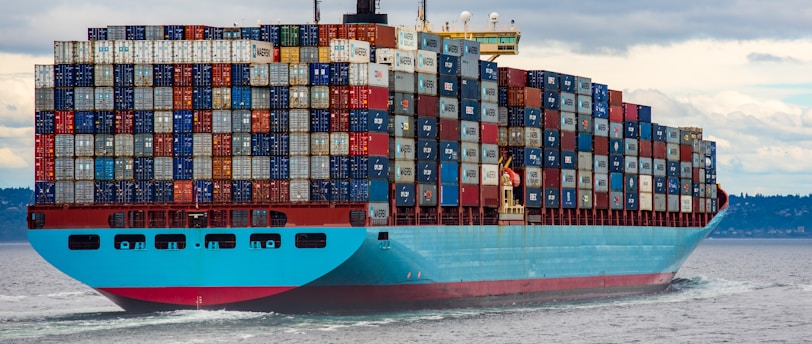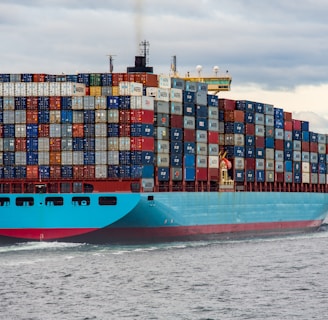Understanding AEO Operator Registration with Customs: Process and Benefits
TAX
6/13/20244 min read


Introduction to AEO (Authorized Economic Operator) Status
The concept of Authorized Economic Operator (AEO) status has become a cornerstone of modern global trade. Introduced by the World Customs Organization (WCO) as part of its SAFE Framework of Standards, the AEO program aims to enhance the security and efficiency of international supply chains. AEO status is granted to businesses that demonstrate robust security practices, compliance with customs regulations, and a commitment to facilitating trade. By achieving AEO status, companies can benefit from a range of customs simplifications and mutual recognition agreements, which ultimately lead to smoother and more efficient cross-border operations.
The origins of the AEO program can be traced back to the early 2000s, a period marked by increasing global trade volumes and heightened security concerns. The WCO introduced the SAFE Framework in 2005, providing guidelines for customs administrations and economic operators to secure and facilitate global trade. The primary objectives of the AEO program are to enhance supply chain security, streamline customs procedures, and foster international trade cooperation. By doing so, the program aims to create a safer and more predictable trading environment, benefiting both businesses and customs authorities.
There are three main types of AEO certifications, each with a distinct scope and set of benefits:
AEO-C (Customs Simplifications): This certification focuses on compliance with customs regulations and offers benefits such as reduced customs checks, priority treatment, and simplified procedures.
AEO-S (Security and Safety): This certification emphasizes the security of the supply chain, ensuring that businesses implement robust security measures to protect their goods during transit.
AEO-F (Full): This certification combines the benefits of both AEO-C and AEO-S, offering comprehensive advantages related to customs simplifications and supply chain security.
Understanding the nuances of AEO status is essential for businesses engaged in international trade. By recognizing the significance of AEO certification and its various types, companies can make informed decisions about pursuing this status and reaping the associated benefits. This foundational knowledge sets the stage for a deeper exploration of the registration process and the specific advantages that AEO status can offer.
The Registration Process for AEO Status
Securing Authorized Economic Operator (AEO) status with customs is a structured and rigorous process designed to enhance international supply chain security and streamline trade operations. Businesses seeking AEO certification must adhere to specific prerequisites and compliance standards. Understanding the step-by-step registration process is crucial for a successful application.
Initially, businesses must ensure they meet the basic eligibility criteria. This includes having a history of compliance with customs requirements, a satisfactory system of managing commercial and transport records, and proven financial solvency. Additionally, companies must demonstrate adherence to relevant safety and security standards.
The first formal step in the AEO registration process is the preparation and submission of the application to the relevant customs authority. This involves completing the AEO application form and providing comprehensive documentation, such as financial statements, records of customs compliance, and details of security measures. Accurate and thorough documentation is critical to avoid delays.
Upon submission, customs authorities will conduct a preliminary review of the application. If the application meets the initial requirements, the business will undergo a detailed risk assessment and audit. This phase involves a thorough examination of the company's internal controls, financial health, and security protocols. Customs officials may visit the business premises to verify the information provided and assess on-site security measures.
Following the audit, businesses may receive feedback highlighting areas for improvement. Addressing these points promptly is essential for progressing in the registration process. Once all requirements are satisfactorily met, the customs authority will grant AEO status. However, obtaining AEO certification is not the end of the journey; maintaining this status requires ongoing compliance with the established standards and periodic reassessments by customs authorities.
Common challenges in the AEO registration process include navigating complex documentation requirements and meeting stringent security standards. To mitigate these challenges, businesses are advised to conduct internal audits, engage with customs consultants, and maintain transparent communication with customs authorities. For example, a logistics company successfully obtained AEO status by implementing a robust internal compliance program and collaborating closely with customs officials throughout the process.
By understanding the detailed requirements and preparing thoroughly, businesses can navigate the AEO registration process efficiently, ultimately benefiting from the associated trade facilitation and security enhancements.
Benefits of Obtaining AEO Status
Achieving Authorized Economic Operator (AEO) status offers a plethora of advantages for businesses involved in international trade. One of the most immediate and tangible benefits is the reduction in customs checks. AEO-certified companies often experience fewer physical and document-based inspections, which translates to faster clearance times. This efficiency can significantly reduce delays in the supply chain, leading to quicker delivery times and improved customer satisfaction.
Additionally, the streamlined customs procedures associated with AEO status lead to substantial cost savings. Reduced administrative burdens and fewer compliance hurdles mean that businesses can allocate resources more effectively, enhancing overall operational efficiency. These direct benefits contribute to a more predictable and reliable supply chain, which is crucial for maintaining competitiveness in the global market.
Beyond these immediate advantages, AEO status fosters stronger relationships with customs authorities. This enhanced trust and cooperation can result in prioritized treatment during customs processing and quicker resolution of any issues that may arise. Over time, this collaborative relationship helps build a more stable and secure trading environment, benefiting both the company and the customs authorities.
AEO certification also bolsters a company's market reputation. Being recognized as a trusted and compliant trader can open up new business opportunities and partnerships. Customers and partners are more likely to engage with a company that demonstrates a commitment to security and efficiency, thereby providing a competitive edge in the market.
Moreover, AEO status can facilitate international trade through mutual recognition agreements (MRAs). These agreements enable AEO-certified businesses to enjoy similar benefits in other countries, further streamlining cross-border trade and reducing the risk of delays. This global recognition can be a significant advantage for companies looking to expand their market reach and engage in more complex international trade operations.
Numerous businesses have attested to the positive impact of AEO certification. For instance, a logistics company reported a 30% reduction in clearance times and a significant decrease in shipping costs after obtaining AEO status. Such testimonials underscore the tangible benefits and strategic value of becoming an Authorized Economic Operator.
©Finex
contactus@finexadvisors.com
+91 8860735442
